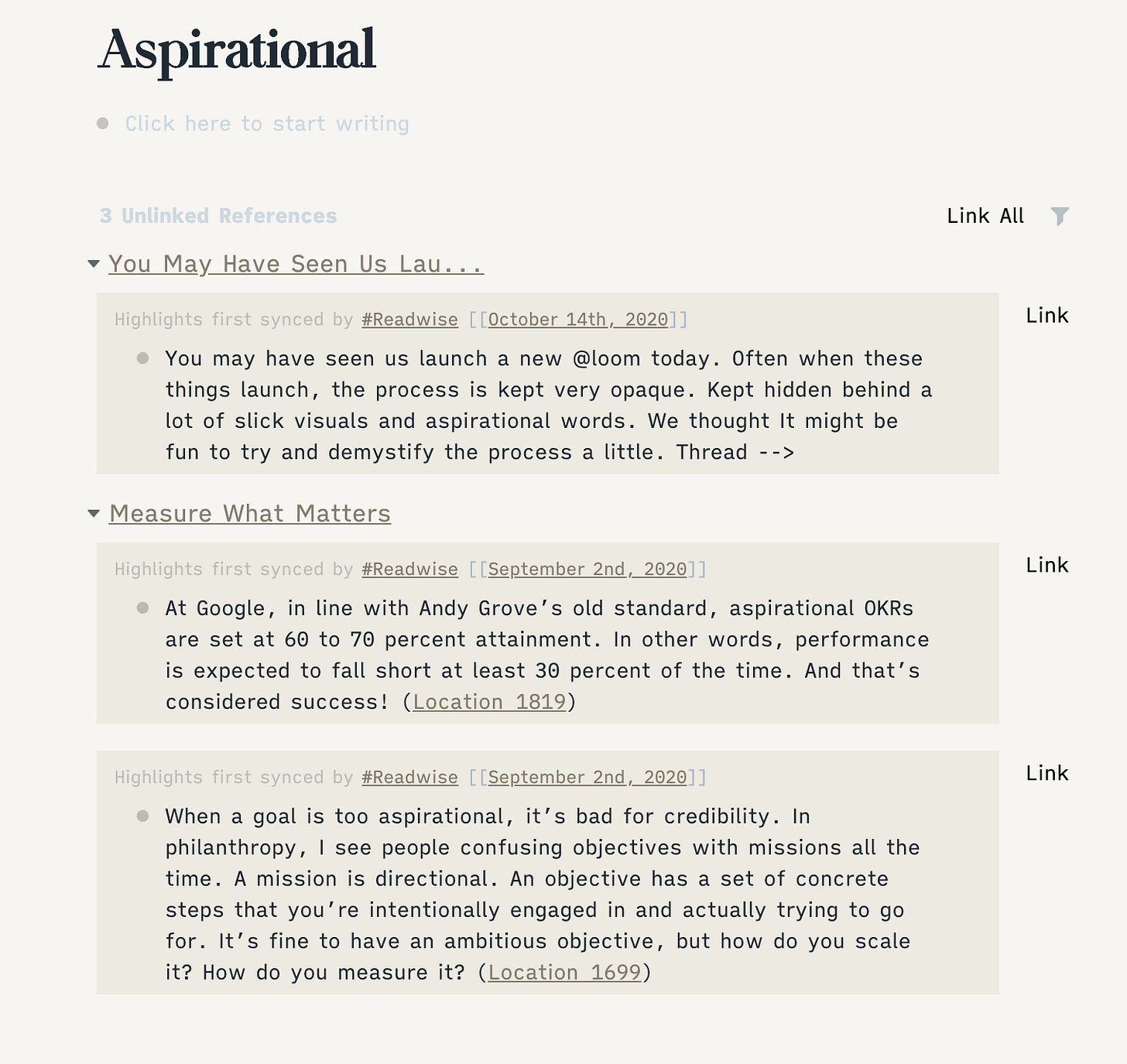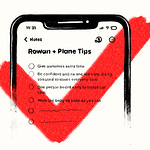If you're new here, welcome! I'm Nate, designer of Plan Your Next. We're now up to 131 subscribers, and you’re all winners in my book. We’re continuing with the theme of the Audible Newsletter, hoping that Amazon picks up on this idea and acquires us. Until then, hit play and listen to a summarized version of this letter.

What’s new this week?
✍️ KonMarie Your Creative Life: A 2,200-word article on how to apply the KonMari method to your creative life.
🎤 Episode #2 of It’s Gotta Be the Mic: Reza and I recorded a podcast this week discussing newsletters and our first week through the On Deck Writer’s Fellowship.
On Thursday night near the end of our podcast, Reza asked me what I was going to write about for this week’s newsletter, and I had no answer.
Before I stopped writing this newsletter in late 2018, that realization would have scared the shit out of me. I was timidly writing from a blank page every time I sat down. Not fun, and not sustainable.
Today, all it took was this image of the XB-Supersonic airliner, and an idea started to percolate.

A word that magically appeared was, “aspirational.” How do you take this word and breathe some life into it?
This image, while real, feels incredibly aspirational. Who has the audacity to think of something like this and execute it? We live in incredible times, but flying from Seattle to Tokyo in 4.5 hours seems absolutely insane.
There are few people on this planet who are extraordinary aspirational thinkers, who also execute. We’re captivated by these people, even if they try and fail. And at first, I thought I might write about aspirational thinkers.
Instead, I’m now writing about how that idea percolated and what to do with it.
Finding connections in Roam Research
Coming back to this article, the idea doesn’t write itself. What I do with that idea is to jump into my note-taking tool called Roam. I’ll scour my notes for words like ‘aspirational’ or ‘creativity’ to see what bubbles up to the surface.

Roam gives me a peek into pages that I’ve linked ‘Aspirational’ to directly to or just surfaced indirectly. Maybe there’s something here in the book, Measure what Matters by John Doer which may give me a unique starting point?
In a somewhat spontaneous connection, this book talks about how companies like Google and IBM used Objectives and Key Results (OKR) to set quarterly goals for their teams. It’s a popular approach that aims to break a larger task into smaller ones, all measured through the use of Key Performance Indicators (KPI).
This nugget of an idea is pretty dry right now since no one is here to learn about OKR’s. But what’s interesting is how the book doesn’t recommend you being too aspirational in setting your goals, because if you never hit it, your team may become discouraged or the vision isn’t quite accurate enough. That balance is key.
In contrast, why is it that we’re drawn to people who think big? Leonardo Da Vinci was not thought of only as an artist, but an engineer of weaponry. Even though most of his concepts never came to fruition, he has hundreds of notes and sketches of these in his archives. He lived an aspirational life, delivering more in notes and sketches than finished portraits or weaponry.
Another example is Elon Musk. While he doesn’t hit many of his projected targets, he’s delivered enough to make us believe that his far-out goals are attainable. Mars by 2022? And humans launching by 2024? Crazy! But then you see this and think, maybe?
What is it about Elon that defies the logic of aspirational OKR’s so that his team isn’t utterly devastated when they can’t hit the mark? An essay for another time.
Until then, I wrote this quick letter in 30 minutes.
Here’s s a breakdown of this process:
Pick an idea, a concept, or even just a word. Let it sit for a moment.
Open your note-taking tool where you should be collecting your finest quotes, highlights, and inspired posts.
Look for uncommon connections that inspire something new.
Write, record a video, or snap a photo using this theme to inspire.
What are you creating this week?
Your next live performance

This pandemic has us wishing we could see more live performances. Oda is a company bringing live performances to your home. It’s a beautifully designed speaker that supports musicians and their business model. They also sell seasonal memberships that aim to support live performances to you directly.
Your next self-evaluation
I’m trying to get better at weekly self-evaluations, but I’ve always struggled with the format. Shelby Smith has a great routine explained here.
I also came across Dr. Cameron Sepah’s Keystone Habit which also promotes the daily/weekly self-evaluation.
Do you happen to review your week regularly? Let me know.
Your next 10,000 iterations
Love this twist from Malcolm Gladwell’s 10,000-hour rule. Naval states that it’s not about the hours you put in, it’s the repetitions that give you the desired skillset you’re after.
See you next Sunday
Are there certain topics you would like me to cover? Hit reply and expect a response!
As always, my calendar is always open to chat about your crazy ideas.
Have a great week!














